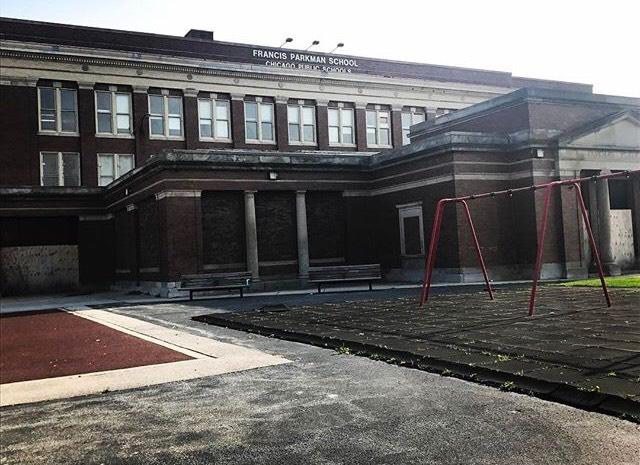Chicago Public Schools to Auction 20 Properties Amid Financial and Enrollment Shifts
Strategic Sale of CPS Properties to Alleviate Budget Pressures
In response to persistent budgetary challenges, Chicago Public Schools (CPS) has unveiled plans to auction off 20 former school properties. These sites, which include a mix of elementary schools, administrative offices, and auxiliary facilities, are being offered for sale with bidding scheduled to commence next month. The district intends to channel the revenue generated from these transactions toward bolstering classroom resources and supporting student programs, aiming to stabilize its financial footing amid fluctuating enrollment trends.
The properties span a variety of neighborhoods across Chicago,reflecting the districtŌĆÖs effort to optimize its real estate portfolio by divesting underused or vacant buildings. Highlights of the properties include:
- Geographic range: Locations in both densely populated urban areas and outlying neighborhoods
- Size variation: Facilities ranging from approximately 15,000 to over 60,000 square feet
- Adaptive potential: Opportunities for conversion into office spaces,community centers,or mixed-use developments
| Property Name | Neighborhood | Square Footage | Current Status |
|---|---|---|---|
| Lincoln Park Elementary | Lincoln Park | 22,000 | Vacant |
| Harrison Administrative Building | West Loop | 38,000 | Former Office |
| South Shore Learning Annex | South Shore | 58,000 | Underutilized |
Community Perspectives: Balancing Concerns and Opportunities
The announcement has elicited a spectrum of reactions from local residents and advocacy groups. Many express apprehension that the sale and closure of these educational sites could erode neighborhood vitality by removing essential community anchors. Critics warn that such moves might accelerate vacancy rates, reduce pedestrian activity, and weaken social bonds within affected areas.
Conversely, some community members are optimistic that, with thoughtful redevelopment, these properties could serve as catalysts for neighborhood renewal. Potential transformations into affordable housing, cultural hubs, or small business incubators are seen as promising avenues to inject new life and resources into underserved districts.
Community Concerns and Aspirations
- Access to education: Fears about increased travel distances for students if replacement schools are not established nearby
- Gentrification risks: Worries that new developments may displace long-term residents or alter neighborhood character
- Revitalization potential: Support for projects that prioritize community needs, such as affordable housing or public spaces
- Inclusive decision-making: Calls for CPS to actively involve local stakeholders in redevelopment planning
| Impact Area | Community Viewpoint |
|---|---|
| Neighborhood Stability | Risk of decline without community-driven reinvestment |
| Economic Progress | Potential for new jobs and business growth |
| Social Cohesion | Possible loss of communal gathering spots |
| Housing Supply | Chance to expand affordable housing options |
Market Dynamics and Valuation Complexities of CPS Properties
The decision to list these 20 properties for sale comes amid a challenging real estate market characterized by economic uncertainty and evolving urban demands. Valuing former educational buildings presents unique difficulties, as factors such as aging infrastructure, neighborhood zoning laws, and the cost of necessary renovations heavily influence market interest and pricing.
Key considerations affecting property valuations include:
- Location advantages: Proximity to public transit and residential zones enhances attractiveness but may impose redevelopment restrictions
- Building condition: Older structures frequently enough require significant upgrades to comply with modern safety and accessibility standards
- Market fluctuations: Demand varies between commercial, residential, and institutional uses, creating pricing volatility
- Community influence: Local support or opposition can impact sale timelines and final agreements
| Property Feature | Impact on Market Value |
|---|---|
| Building Age | Lower valuation due to anticipated renovation expenses |
| Neighborhood Density | Higher interest for mixed-use or residential redevelopment |
| Zoning Limitations | Restricts potential uses, reducing bid competitiveness |
| Accessibility | Improves desirability and bidding activity |
These valuation challenges require CPS to carefully balance maximizing financial returns with ensuring lasting and community-sensitive outcomes. Prospective buyers are encouraged to perform comprehensive due diligence and consider innovative adaptive reuse strategies to unlock the full potential of these unique properties.
Guidelines for Clear Sales and Community-Focused Redevelopment
Experts in education policy and urban planning advocate for a transparent and inclusive bidding process.They recommend public disclosure of all submitted bids and clear criteria for selection to foster trust and accountability. Establishing an self-reliant oversight panel, including community representatives, can help ensure fairness and mitigate conflicts of interest throughout the sale process.
Regarding the future utilization of these properties, specialists suggest:
- Preservation of community value: Prioritize buyers who commit to maintaining public or nonprofit uses rather than purely commercial redevelopment
- Engagement with residents: Incorporate neighborhood feedback into redevelopment plans to address local priorities such as affordable housing, cultural spaces, or educational facilities
- Ongoing oversight: Implement mechanisms for periodic review of property use post-sale to ensure alignment with community benefits
| Suggestion | Objective |
|---|---|
| Independent Oversight Committee | Guarantee impartial evaluation and clarity |
| Community Consultation Forums | Integrate local perspectives into redevelopment decisions |
| Post-Sale Usage Monitoring | Ensure accountability for property utilization |
Conclusion: Navigating Change in CPS Real Estate Management
As Chicago Public Schools advances with the auction of 20 properties, this initiative represents a pivotal shift in how the district manages its real estate assets amid evolving educational and financial landscapes. While the sales aim to generate critical funding and optimize resource allocation, they also raise important questions about neighborhood impacts and the future of public education infrastructure. Stakeholders will be closely monitoring the bidding process and subsequent redevelopment efforts to ensure that outcomes support both fiscal obligation and community well-being. Updates will be provided as the district evaluates bids and finalizes decisions.





